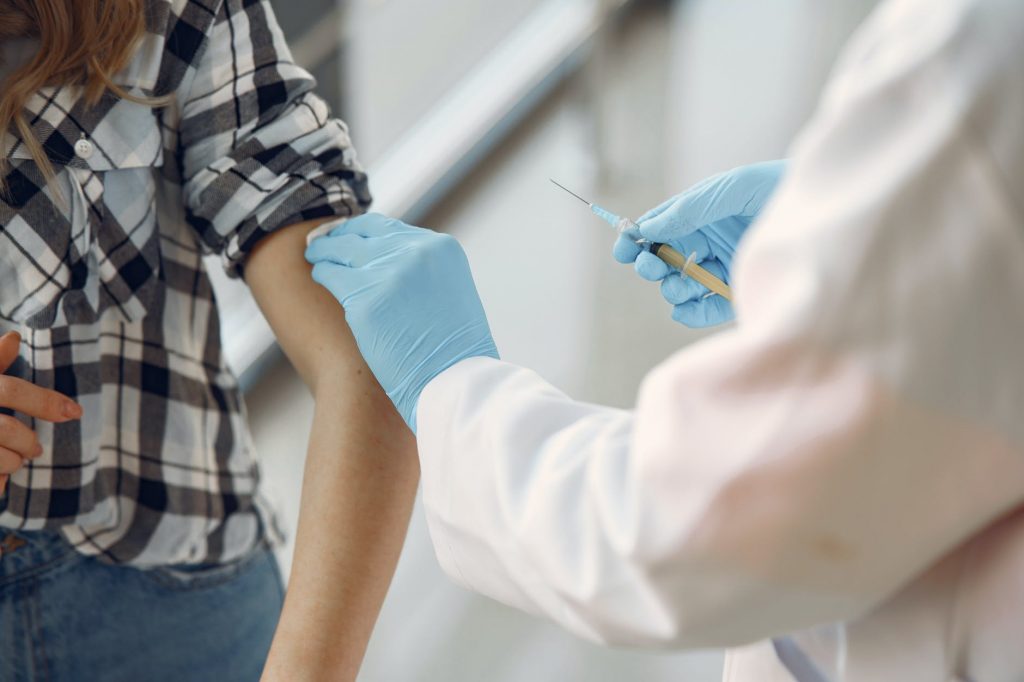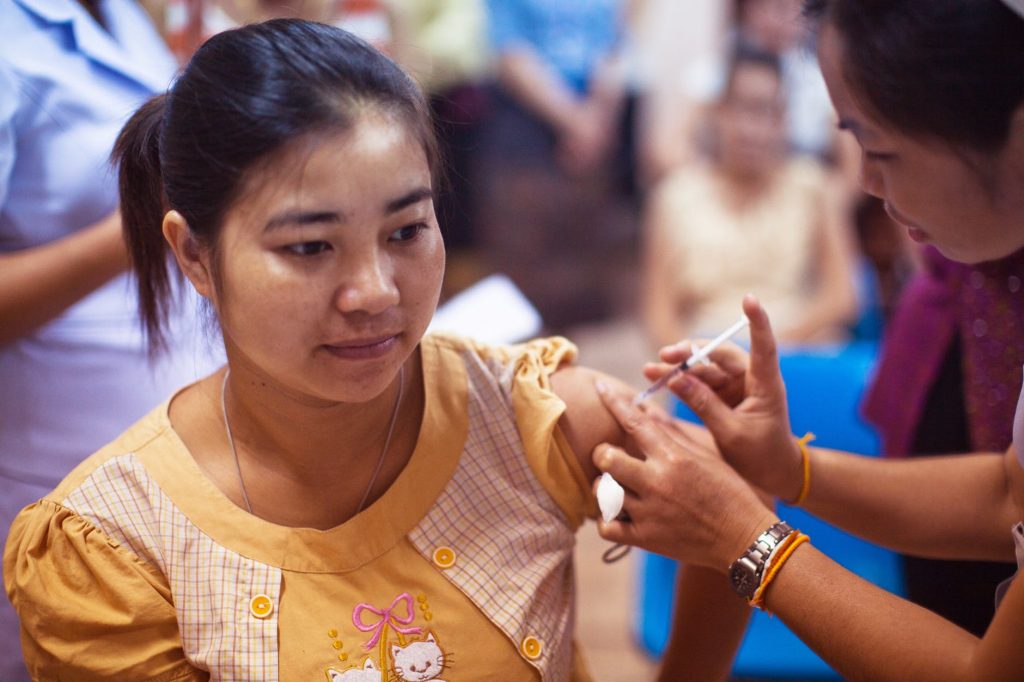This is a free essay sample available for all students. If you are looking where to buy pre written essays on the topic “Pros and Cons of Vaccinations”, browse our private essay samples.
Introduction
As we live in the thick of a raging pandemic, the topic of vaccination programs and whether or not it’s wise to participate has caused extreme polarization in many communities. Pro-vaccine groups try to convince anti-vaccination individuals to reconsider, due to the nature of the virus.
What are the pros and cons of vaccines? What do we need to know about live attenuated vaccines? The writer of this essay contrasts the advantages and disadvantages of getting vaccinated.
Feel free to browse through our other sample essays or avail of our essay writing services today by clicking on this link.
Advantages Of Vaccinations
Pandemic or not, we wouldn’t be where we are without many vaccines that have helped keep most of the world’s population healthy and safe. Whether they are live attenuated vaccines or inactivated dead viruses, both serve the purpose of disease control in a specific population for vaccine-preventable diseases. Sometimes, herd immunity is reached; other times, the disease just downgrades into an easily treatable condition that will forever circulate in the community.

What are the benefits of opting for vaccination? In this essay, I would like to share a few pros to taking this stance.
Vaccines work to save lives, especially in vulnerable populations.
The American Pediatrics Society clearly states that getting children vaccinated will do a great job of preventing disease, up to a 99 percent level of efficacy. Many parents opt to enroll their kids in most childhood vaccines because they believe in reducing risk and managing symptoms if kids still end up getting sick. They believe that these jabs will protect children, especially newborn children, from contracting a life-threatening illness that could otherwise have been prevented by childhood immunization. They allow young people to develop immunity from infectious diseases through the injection of a weakened pathogen. It will be enough to boost the immune system so that it is prepared to respond when it does encounter a high viral load of the same illness.
Vaccines are safe to use on most people.
Unless you have had a severe allergic reaction to a vaccine, most modern vaccinations are safe. You may have some flu-like symptoms and soreness at the injection site a day or two following your injection, but this is not because you have fallen ill from the virus. This is a sign that your immune system has been stimulated to respond, and it is already producing the necessary antibodies to combat the virus (weakened or inactive) that was injected into your system. Your symptoms should subside quickly. After a period of time, your immunity against the disease will be heightened and it should help prevent illness for a long period of time. The safety of vaccination is vouched for by major health organizations such as the Center for Disease Control (CDC), Food and Drug Administration (FDA), and World Health Organization (WHO).
Getting children immunized saves parents money and time in the long run.
Since unvaccinated children are prone to be viral carriers and superspreaders of any disease their system comes across, they can easily bring down all other family members with the sickness even if they themselves never develop symptoms. Not only can they affect the household, but peers and teachers if they go to public school. At the same time, should they be the ones to get sick from certain diseases, it will cost so much money to undergo medical treatment, especially if it requires hospitalization and they don’t have any form of health insurance. Not only are vaccines good for children’s health, but they also protect the adults around them. Some examples of recommended immunizations for kids are the MMR vaccine, flu vaccine, and DTaP vaccine, which covers whooping cough and polio viruses.
Vaccination indirectly saves society money.
Unbeknownst to many people, yet another benefit of getting your kids jabbed is its economical value to the larger society. According to the CDC, the amount saved in relation to productivity, disability, and early death by vaccinating children between 1994 and 2014 was a whopping $1.38 billion. That’s a big amount of money that could already be reallocated to improving current vaccinations or further medical research.
Disadvantages Of Vaccines
While there is a lot of convincing evidence that vaccination is safe and the high vaccination rates to prove them, there is still a large camp of people who are strongly against vaccines and promote natural immunity instead. Some of the more extreme groups that are anti-vaccination even go as far as saying no to every single possible vaccine offered to them, as well as their children. These discussions have amplified in the past few years as the novel coronavirus has caused several issues to emerge regarding the safety and efficacy of its jabs.

In this essay, I would like to share some of the risks associated with getting vaccinated.
There are still many unresolved safety concerns.
Within the general public and in the medical community, there are some people who double the biological makeup of these injections, believing that they contain unsafe ingredients to bind the formula together. Some of these include thimerosal, formaldehyde, and aluminum. They believe that if any faulty vaccine makes it to market, there is a risk of people dying from the injection because of the faulty dosages that were left unchecked.
Despite the high tolerance of most people, those who don’t know that they are allergic suffer adverse effects.
Unfortunately, no vaccine is perfect, and one can experience allergic reactions to an injection, especially if they have no known history of bad interactions with the allergen. Children are most at risk of experiencing these reactions as they are still getting used to different kinds of food and may not ever have been tested for allergies.
Anti-vaxxers believe that natural immunity is still the most superior protection.
People who are strongly against vaccination are sometimes not really fighting the vaccine-makers themselves, some of them just solely believe that our immune system was created to effectively withstand any novel virus that it encounters. They would rather fall ill to a new virus and allow their bodies to do their own work in antibody development, confident that the immunity they will get from the experience will be more than sufficient to stave off future variants or strains of the same virus.
It is perceived as the government’s way of intervening in personal medical decisions.
It irks many people that mandatory vaccinations are just the government’s covert way of imposing their preferences on the general public. Some more radical groups even believe that these vaccine rollouts are part of a bigger conspiracy that serves a larger agenda. While this has never been proven, it has kept many unvaccinated groups from keeping an open mind about these injections.
People are skeptical of Big Pharma.
The Big Pharma phenomenon cannot be denied, as these are businesses that eventually need to make a profit. Because of this skepticism, they tend to fall for many Internet conspiracies on the adverse effects of the jab, one of which is that it can cause autism in children. Parents are the ones who are most affected by this false information, as it keeps them from getting their children vaccinated, They are afraid that their kids will be one of the handfuls of young people who will experience a severe side effect from a vaccine. This then spirals into complete unbelief in vaccines for other diseases. As such, many lives are put at risk because adults can’t get over their skepticism and reluctance, despite a large body of evidence that guarantees the safety and efficacy of the vaccines in question.
Mandatory vaccination goes against freedom of religion.
Finally, from a faith perspective, there are some religious groups who don’t believe in vaccination or are against it because it tramples on the key principles of their chosen spirituality.